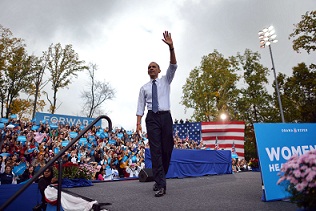Next international conference on maritime security in Africa to take place in Egypt
Agence France-Presse ABUJA: African nations have agreed on joint measures, in which they will get U.S. assistance, to confront threats to their maritime, fisheries and oil export activities ranging from piracy to smuggling people and drugs. Faced with many maritime problems, they agreed at the end of a three-day international conference on maritime security in Africa to integrate their shipping fleets with the Automated Identification System (AIS) to combat insecurity and plundering of the continent s sea resources. The 200 delegates at the conference, who represented 47 countries and 38 African naval forces, adopted the 14 resolutions on Wednesday at the end of the conference. Two of the most important resolutions aim at equipping the coastal nations with the AIS network and establishment of four naval task groups in four cardinal points of the continent: Egypt (north), Nigeria (west), South Africa (south) and Kenya (east) to boost the military capacity of the Africa Union (AU). African seas are the theaters of violence related to illegal activities such as drug and human trafficking, piracy, oil stealing and hostage-taking. Indonesia is the first country as far as piracy is concerned, but it is followed by two African countries, Somalia and Nigeria is number three in the whole world, Admiral Harry Ulrich, commander of U.S. naval forces in Europe and Africa, told the conference. When you fight against bunkering (stealing of oil) and it decreases, then piracy increases. It means it is the same people doing both. The pirates attack everything from tankers to fishing and commercial boats. Their main motive is money, the head of the Nigerian navy, Ganiyu Adekeye, told the gathering. Nigeria, Africa s largest oil producer and the world s sixth largest exporter with a daily output of 2.6 million barrels, loses 100,000 barrels per day to bunkering, according to experts. Environmental protection was also a concern alongside the looting of African fish resources. A report to the conference by Egypt said around 38 percent of coastal ecosystems, mangroves, coral reefs are threatened by port development, increase in coastal installations and accompanying spilling of used water. Already in 1980, the report said, 40 percent of mangroves in Nigeria, constituting important passageways for fish as well as a barrier against erosion caused by waves, had disappeared . In Mauritius, two-thirds of the inhabitants in the coastal region drop their wastes in the sea, and in Comoros, there is not a single system to treat waste water, the report said. Pillage of sea resources is a major cause of poverty because estimates have it that a billion dollars is stolen yearly from African budgets. African security worries coincide with the strategic and economic interests of the United States, initiator of this maritime conference, which has since the September 11 2001 terrorist attacks declared a war against terrorism in all its ramifications. The United States gets 20 percent of its crude oil supplies from the Gulf of Guinea, particularly Nigeria, and Africa includes key maritime routes such as the Strait of Gibraltar, the Cape of Good Hope and the Suez Canal. Hence the superpower interest by promising to help develop navies and equip them, as Ulrich explained. If you want maritime security, you must pursue it as a team sport. No single country can do it alone, including my own, he said. What is needed is awareness and political will of course, cooperation and trust among the nations and solid international partners. The U.S. is prepared to be such a partner. We look to your lead, he added. This AIS system is to be owned by nobody and to be shared by a wide range of like-minded partners. It is and must remain unclassified and transparent. Such a network will enable the countries gathered here to protect their maritime resources making sure they are used for the good of the nation, the U.S. military boss said. But African navies are generally ill-equipped and dispose of little means, which limit their efficiency, except they rely on marines from the west, whose forces regularly patrol African coasts. It is hoped that the establishment of the four naval units in Africa would help in solving this problem. The next international conference on maritime security in Africa is expected to take place in Egypt in two years time. The last edition took place last August in South Africa.


